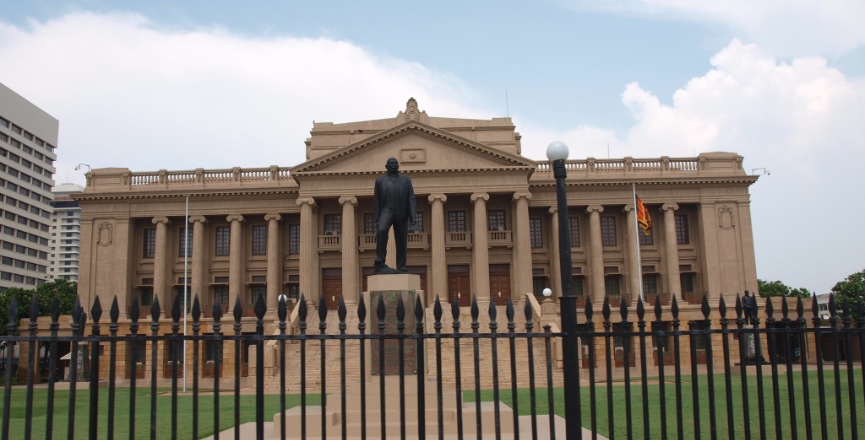George Lakey is a well-known Quaker peace activist, sociologist and writer.
The Guardian notes that among his many actions, “He helped sail a ship to Vietnam filled with supplies for peace activists during the Vietnam war, led workshops sponsored by the African National Congress to keep the peace in South Africa’s first multi-racial election in 1994, acted as an unarmed bodyguard for human rights defenders in Sri Lanka and has campaigned for same-sex marriage and LGBTQ rights.”
That time in Sri Lanka as an “unarmed bodyguard” was with Peace Brigades International, which had a team there from 1989 to 1998.
PBI volunteer Melissa Butcher has noted, “In Sri Lanka, the Bar Association asked PBI to send a team after a series of kidnappings and murders of civil rights lawyers.”
“In three months of state of emergency in Sri Lanka in 1989, as many as 4,000 people were believed to have been killed or are still missing.”
“Lawyers who represent detained and disappeared persons become targets themselves. By October 1989, six had been murdered.”
“When PBI arrived, few lawyers were taking cases on behalf of people thought abducted, and some had left the country. With the protection of PBI volunteers in November 1989, the office of a leading civil rights lawyer was reopened.”
Pat Coy, a PBI volunteer in Sri Lanka, has also explained, “When Peace Brigades went to Sri Lanka in 1989, they went there to protect the lawyers who were the last bastion of protection against the state.”
In February 2019, Lakey reflected, “In 1989 — I joined the first Peace Brigades International, or PBI, team in Sri Lanka.”
“Our job was to act as unarmed bodyguards for lawyers who were threatened with assassination because they were standing up for activists’ human rights.”
“Each of us followed the directions of whichever lawyer we were assigned to. In one case I was told to live with the lawyer’s family and answer the doorbell at night after curfew, on the chance it was the hit squad there to kill the lawyer.”
“Whatever delaying tactics I used, enhanced by my American white skin privilege, might give him the margin of safety he needed. He readily agreed to PBI’s policy that he needed to lock up his gun, believing that nonviolent intervention gave him a better chance than a shoot-out.”
“After I moved into his house, he took me on a ‘social call’ to drink tea with the family of a colleague. On the way home he told me that the colleague was acquainted with the controller of the hit squad. ‘By tonight,’ he said, ‘the controller will know all about PBI and possible repercussions if he kills me. He’ll think twice about dispatching the next hit squad.'”
And in 2006, Lakey commented, “Every day we risked our lives as we accompanied human-rights activists who were targeted for assassination by hit squads. We were unarmed bodyguards whose presence raised the threshold for attack. The fact that we were internationals gave some protection.”
“I’m not a particularly brave person, and I doubt I would have gone to Sri Lanka if this kind of work had not already been tested in violent El Salvador and Guatemala, where Peace Brigades International (PBI) assisted local democracy advocates. There were some close calls, but no team members were killed.”
And while still in Sri Lanka in August 1991, Lakey observed, “Each leader who stays alive and working is also valuable symbolically in the larger struggle between hope and despair. Keeping the hope alive is a condition of eventual peace.”
Now 81 years old, Lakey remains committed to hope, peace and justice.
In May 2012 (at 74 years of age) he walked 320 kilometres across Pennsylvania as part of an Earth Quaker Action Team that stopped the PNC bank financing coal companies that practice mountaintop-removal; in March 2018 he was arrested in the Power Local Green Jobs campaign demanding that the regional energy utility start a community solar program for low-income neighborhoods; and in December 2018 his new book How We Win: A Guide to Nonviolent Direct Action Campaigning was released.
Brent Patterson is the executive director of Peace Brigades International-Canada. This article originally appeared on the PBI-Canada website here.
Image: Nigel Swales/Flickr




